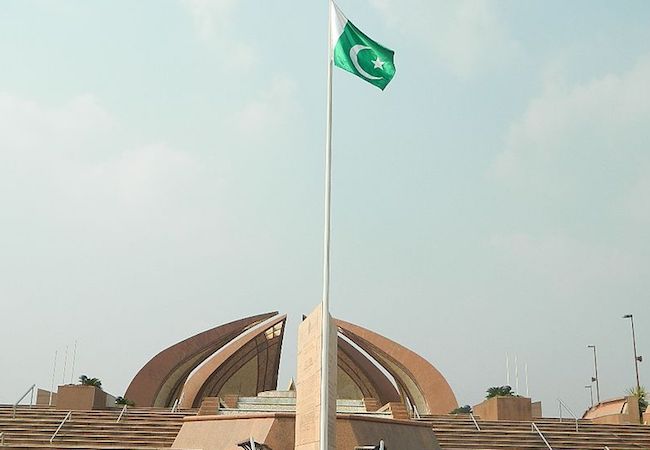
By Sana Hamid
There has been a lot of jabbering about India’s notice to Pakistan seeking modification in clauses of Indus Water Treaty (IWT) and calling upon Pakistan to respond within 90 days. India has invoked Article 12 (3)of IWT and Pakistan, for its part is clamoring on the same article to ensure upon India the sanctity of Indus Water Treaty. Article 12 (3) stipulates that “the provisions of this treaty may from time to time be modified by a duly ratified treaty concluded for that purpose between the two governments”, hence serving the rhetoric of both. Without details of proposed modifications coming to fore, rumors abound ranging from India asking for dispute settlement on the bilateral level to an article in ‘The Diplomat’ reporting that India seeks to amend Article 9 of the treaty. Rather than choosing any of the three dispute settlement mechanisms-Neutral Expert, Permanent Court of Arbitration, or consulting World Bank, it wants that the resolution of differences shall be made step by step. First, a Neutral Expert shall be consulted and if the issue remains unresolved, the case then shall be taken to the Permanent Court of Arbitration.
While we debate on the proposed mechanism for dispute resolution, our utmost question of intrigue shall be “Is India negotiating from the position of strength vis. a vis. Pakistan” and if so, “Is Pakistan losing to India in their already fragile balance of power pendulum”. Such a demand to amend an international treaty can be expected to come from a state that considers itself powerful enough (as compared to the other state) to modify the situation to its own benefit or if it considers that negotiating with the targeted state bilaterally will give it more leverage to negotiate from position of strength, more than that might come with any multilateral body involved. If any of this is the case, diplomatic burden lies on the respondent state to prove its statutory strength and strategic viability. So where does Pakistan stand in this situation?
India has called for modification in the treaty citing ineffective dispute settlement mechanism that has failed to achieve order on two controversial run-of-the-river Hydropower Projects being constructed on Jhelum and Chenab River in Indian Illegally Occupied Jammu and Kashmir (IIOJK) respectively. The two projects, namely Kishanganga Hydropower Project and Ratle Hydel Power Project are expected to generate 330 MW and 850 MW respectively with the former also irrigating some 30, 000 acres of land in IIOJK. Kishanganga Project was inaugurated in 2007 but the progress on its construction halted in 2011 as Pakistan had reached out to Permanent Court of Arbitration, claiming that the construction of dam in the project deprives the lower-riparian region of Azad Kashmir from its legitimate share of water as guaranteed by IWT. The court, however, ruled in favor of India proposing that such run-of-the-river hydel power projects had been allowed by the treaty, whereas, India was put under an obligation to allow the minimal flow of 9 cumecs (m3/second) to Pakistan. India, while declaring that it was lowering the height of the dam from 98 meters to 37 meters, began construction on the project in full swing. Despite the ruling, Pakistan has found some concrete evidence of India deviating from its commitments under IWT, in designs and operations of both the projects. Ratle projectwas inaugurated in 2013 and is under-construction, whereas Kishanganga has been commissioned and connected to the national grid with its three units generating 110 MW each.
The completion has taken place in the aftermath of the World Bank pausing two contravening dispute settlement mechanisms that it had initiated simultaneously. In this scenario, the World Bank has erred and instead of bringing a viable solution to the conflict, has constructed further ambiguity and chaos in the prevailing situation. It was in 2016 that the World Bank began hearing Pakistan’s demand of empanelment of the Court of Arbitration and India’s claim of appointment of Neutral Expert, simultaneously. To Pakistan’s detriment, any decision coming from a Neutral Expert would not bear any legal wait in contradiction to the Court of Arbitration whose ruling will bind both states to abide by the morality of being a responsible citizen of the committee of nations, if nothing else. But the pause has also caused Pakistan a loss, with India inaugurating and commissioning the Kishanganga hydel plant in violation of the much-revered articles of the Indus Water Treaty. The latter notice by India had come just two days prior to the Court of Arbitration hearing on the case, which came after the World Bank, once again resumed both hearings simultaneously in April, 2022. India, in doing so has directly put the burden of its failures to abide by the treaty on the treaty itself.
If Pakistan has to comply with India’s demands of bilateral dispute settlement, 1972 Shimla Agreement-as in case of surgical strikes or abrogation of Articles 370 and 35 A- becomes encumbrance. If Pakistan opts for the second purported demand by India, there is a chance in prolonging the process, it just wants to buy time for completion and commissioning of its Ratle Project still under construction. Hence, Pakistan needs to be strategic as it considers any such Indian demands of amendments. With a state like India lurking in hubris syndrome, it is viable that Pakistan keeps international regimes involved but concurrently, it needs to extend and strengthen its muscle in the regional and international realm to its own greater benefit.
It is beyond their fascist vision to realize that belligerently created economic turmoil (in this case due to water politics) stands as the red line to our otherwise No-First Use Policy’ Nuclear Doctrine but it is prudent for Pakistan to indulge into tactical, technical and foreseeable policy planning and decision-making in this regard. Neelum-Jhelum River Project offering 960 MW capacity offers a viable prospect in this regard.
Sana Hamid is a graduate of International Relations from BUIC, Islamabad, Pakistan




